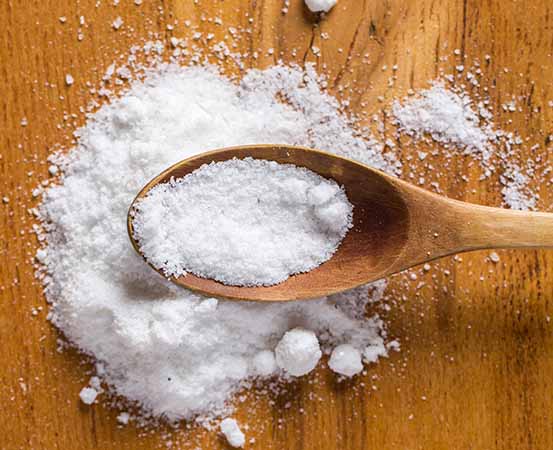
It is not just hypertension and cardiovascular complications; excess dietary salt consumption too could trigger type 2 diabetes in the long run.
A group of researchers from Tulane University in the US has concluded that long-time consumption of excess salt increases the risk of weight gain, especially abdominal fat, and could eventually lead to type 2 diabetes. The study has also concluded that people with high intake of dietary salt on a regular basis had a 39% higher risk of developing type 2 diabetes than someone who did not put salt in their food. People who preferred to add their salt less frequently had a lower risk percentage of 20. The risk was found to be the lowest (13%) in the case of people who rarely used salt in their food.
“We already know that limiting salt can reduce the risk of cardiovascular diseases and hypertension, but this study shows for the first time that taking the saltshaker off the table can help prevent type 2 diabetes as well,” said lead author Dr Lu Qi, HCA Regents Distinguished Chair and professor at the Tulane University School of Public Health and Tropical Medicine, in an official media release from the university.
According to the researchers, the health data of 402,982 participants from the UK Biobank who were free of diabetes, cardiovascular conditions and kidney problems was analyzed and co-related with their daily pattern and frequency of salt intake. The conclusions of the study have been published in the peer-reviewed Mayo Clinic Proceedings medical journal and has highlighted the need for further studies to fully understand the link between salt and type 2 diabetes.
After an 11.8-year follow-up, the study concluded that out of the 402,982 participants, at least 13,000 were found to have developed type 2 diabetes. The dietary patterns and other variations in their health conditions were also closely followed and adjusted to the variations from the base HbA1C reading recorded at the beginning of the study. People following the DASH diet — which is primarily low on salt and sugar, and high on fruits, vegetables and natural micronutrients — were found to have a better health status during the timeline of the study.
The researchers have concluded that reduction of salt intake should also be included as one of the behavioral interventions for better management of type 2 diabetes.
Link between salt intake and diabetes
One of the main findings of the study was the link between salt intake and body weight, especially around the waist and abdomen. Coincidentally, excess abdominal fat is also one of the prominent markers for high risk of type 2 diabetes, according to experts.
High intake of salt, according to the researchers, was found to considerably increase inflammation and oxidative stress in the body — the factors responsible for triggering insulin resistance and onset of type 2 diabetes.
Dr Belinda George, associate professor, endocrinology, St John’s Medical College, Bangalore, says that excess intake of salt is directly linked to weight gain in the body which leads to hypertension.
“Whenever there is higher salt in the body it could lead to more water retention, and this water weight gets added to the body weight. Obesity and hypertension are direct factors responsible for increasing the risk of type 2 diabetes,” she says.
She adds that salt intake also increases hypertension in the individual.
The study also states that type 2 diabetes and hypertension co-exist together. It attributes this to obesity, insufficient physical activity and unhealthy diet.
“Hypertension and diabetes share the same common root cause like insulin resistance,” Dr George adds.
WHO report on hypertension
The WHO recently released its first global report on hypertension and highlighted that hypertension induced by excess dietary sodium consumption was responsible for at least 2 million out of the total 10.8 million deaths due to cardiovascular conditions across the world. The global health body called people to reduce their dietary salt intake and adopt a healthier lifestyle, stating that both hypertension and diabetes share a common link as most people with uncontrolled diabetes have high blood pressure and vice versa.
“Uncontrolled hypertension and high cholesterol — not hyperglycemia — are the risk factors most strongly associated with premature death and disability among people living with diabetes,” the WHO report states.
Dr Belinda pointed out that some people, especially Indians, often tend to believe that diabetes management is all about cutting down only sugar-rich food.
“They end up not controlling intake of foods that are rich in salt — especially snacks like namkeen — and this could have an adverse impact on their diabetes management,” she says.
In another recent WHO report on the consumption and sales pattern of ultra-processed food in India, it was pointed out foods high in fat, salt and sugar as the main factor responsible for the prevalence of non-communicable diseases like diabetes and coronary heart disease.
How to reduce salt consumption
The WHO hypertension report calls for the inclusion of more fiber- and protein-rich food along with essential minerals and other macronutrients in the daily diet. It specifically points out that going easy on salt and opting for more potassium- and nitrate-rich green leafy vegetables and fruits in diet will help improve vascular health and blood circulation, and minimize the risk of diabetes and heart conditions.
Takeaways
A recent research article has pointed out that prolonged consumption of excess salt in food could increase the risk of type 2 diabetes. The conclusion was arrived at after analyzing the health data of more than 40o,000 people and their dietary patterns from the UK Biobank cohort for over a decade. The article calls for further research into the link between diabetes and salt intake, and also states that reducing salt intake could help to prevent the onset of type 2 diabetes.


















One Response
Useful